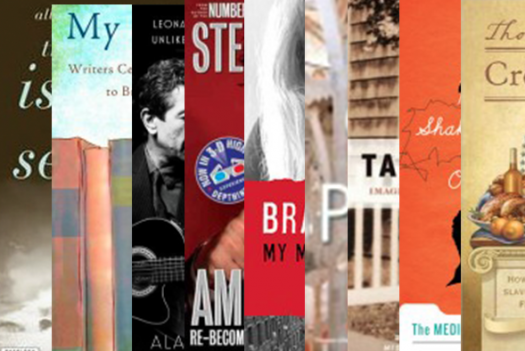
Editor’s note: We are very happy to announce that Robert Birnbaum, longtime contributor to The Morning News and Identity Theory, will also be joining VQR on a monthly basis to share a selection of unusual finds. Look for him the first Tuesday of every month.
———
As a beneficiary of the book business’s publicity engine, I receive a few thousand books a year. Which is, as some of you might know, a mere drip-drop of the vast number of volumes filling bookstores, libraries, and incinerators each year. That steady torrent has always motivated me to try to make some sense of the small part of the publishing horizon that I am able to view. And, not less importantly, to put the books I receive to some use—especially in light of the fact that I am not able to read all of them.
There is a special category of published books that I loosely shelve together in the Strange/Odd Books section. Now that rubric seems a bit too encompassing for what I have in mind; I take that term to mean original, either by virtue of the subject matter or the physical format or some peculiar circumstance attached to book in question.
For example, I include titles such as Wittgenstein’s Poker: The Story of a Ten-Minute Argument Between Two Great Philosophers, a book about a legendary story in academic philosophy, the confrontation between Karl Popper and Ludwig Wittgenstein. Or Jonathan Foer’s Tree of Codes based on Bruno Schulz’s book The Street of Crocodiles. Or the Novelist’s Lexicon: Writers on Words That Define Their Work.
I’m confident you’ll see the what and the why of my meaning as you (hopefully) read further.
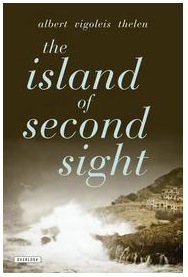
The Island of Second Sight by Albert Vigoleis Thelen
Republished in English for the first time in half of a century, The Island of Second Sight by German author Albert Vigoleis Thelen (translated by Donald White) was acclaimed one of the greatest novels ever by Thomas Mann—who was apparently given to such bombastic pronouncements. A Bolanesque-Ceravantian romp, the novel is set on the Mediterranean island of Majorca during World War II.

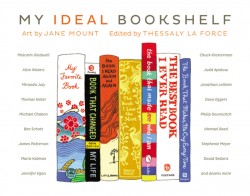
My Bookstore by Ronald Rice
My Ideal Bookshelf edited by Thessaly La Force
Writers are always going on about some aspect of reading—an inclination made legitimate by Walter Benjamin’s Unloading My Library. Currently two books discuss matters collateral to reading.
My Bookstore: Writers Celebrate Their Favorite Places to Browse, Read, and Shop by Ronald Rice (with an introduction by Richard Russo) collects 80 pieces by a wide array of writers. One wonders how much interesting stuff there is to be said about bookstores.
My Ideal Bookshelf by Thessaly La Force (editor) collects 100 leading cultural figures, including Chuck Klosterman, Jennifer Egan, Michael Chabon, Patti Smith, Thurston Moore, Alice Waters, Mark Bittman, and many more , who reveal the books that matter to them most. And this book is festooned with vivid original paintings by Jane Mount.
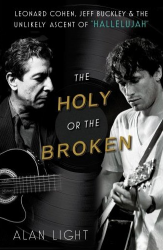
The Holy or the Broken by Alan Light
Imagine devoting a whole book to one song. That kind of attention is usually reserved for an anthem or hymn. Given the remarkable ubiquity of Leonard Cohen’s “Hallelujah,” Alan Light’s account of its history in The Holy or the Broken: Leonard Cohen, Jeff Buckley, and the Unlikely Ascent of “Hallelujah” qualifies it as interesting reading.
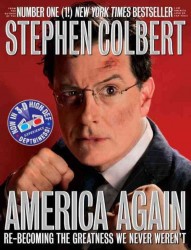
America Again by Stephen Colbert
You have every right to ask what’s special about Stephen Colbert’s newest opus America Again: Re-becoming the Greatness We Never Weren’t. How about it’s in 3D? Still need convincing? Here’s the book’s message in a nutshell: “… in the history of mankind there has never been a greater country than America. You could say we’re the #1 nation at being the best at greatness … It’s high time we restored America to the greatness it never lost!”
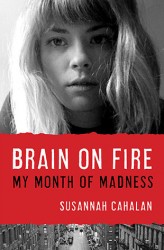
Brain on Fire by Susannah Cahalan
In case you have the sense from recent brain science that the workings of that vital organ have been significantly demystified, try New York journalist Susannah Cahalan’s account of her medical travails in Brain on Fire: My Month of Madness. Disabled by a rare affliction, she was lucky to come upon a large, unflagging support group and a diligent physician who ultimately came up with an accurate diagnosis. That she recovered makes for a feel good ending. That it might have easily gone in different direction is, of course, the cautionary aspect of this tale.
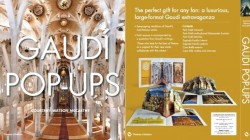
Gaudí Pop-Ups by Courtney Watson McCarthy
Combine the novelty of pop-up renderings with the singular works of Catalan architect and designer Antoni Gaudí, and Gaudí Pop-Ups, created by paper magician Courtney Watson McCarthy, and you are as close to Barcelona as you can be without going there.
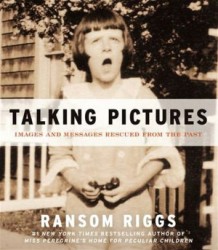
Talking Pictures by Ransom Riggs
My first encounter with someone trying to make sense of antique photo images was via the groundbreaking Wisconsin Death Trip by photo historian Michael Lesy. Ransom Riggs follows in those footsteps, assembling a compelling, albeit very personal array, of antique found photographs in Talking Pictures: Images and Messages Rescued from the Past.
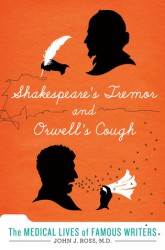
Shakespeare’s Tremor and Orwell’s Cough by John J. Ross, M.D.
This buoyant and entertaining book presents the case histories of 10 writers whose health influenced their literary work—including John Milton, George Orwell, Charlotte Brontë, Jonathan Swift, Herman Melville, William Butler Yeats, James Joyce, and Jack London. The appetite for assorted trivia about famous figures apparently goes unabated.
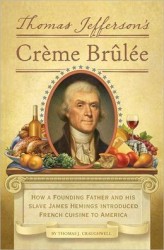
Thomas Jefferson’s Creme Brûlée: How a Founding Father and His Slave James Hemings Introduced French Cuisine to America by Thomas J. Craughwell
The title tells it all. One could say who cares, but really this is an unusual entry into the life of an American colossus. And who can’t use a decent recipe for creme brûlée?
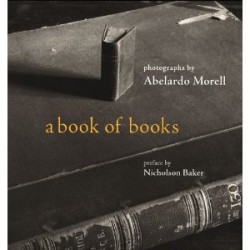
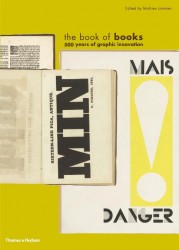
A Book of Books | The Book of Books
Photographer Abelardo Morell’s A Book of Books is a splendid monograph of 52 small masterpieces that, as one critic opined, are “paeans to the materiality of bookness.” The Book of Books: 500 Years of Graphic Innovation byMathieu Lommen stands as a useful and occasionally inspiring survey of how the constituent elements of books—pages, covers, and so on were transformed from cave wall scrawls and illuminated manuscripts to the transports of immeasurable information.
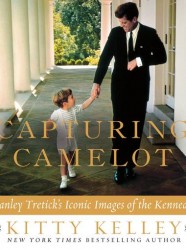
Capturing Camelot by Kitty Kelley
Having lived through the semi-mythical era that marks the brief Kennedy presidency and its aftermath, Capturing Camelot: Stanley Tretick’s Iconic Images of the Kennedys by Kitty Kelley is not so much a nostalgic journey as a refresher course in the potency of legend and the iconography of American history.
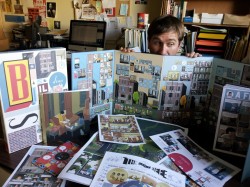
Building Stories by Chris Ware
Years ago Aspen magazine broke format and created issues that came in boxes with various disparate elements. The exclusive limited edition Visionaire has done the same (one issue was contained in a Louis Vuitton folder). Some issues of McSweeney’s Quarterly have gone this route. Chris Ware’s Building Stories follows suit as a large box containing 14 variously formatted stories. Both the stories and their presentation are engrossing.
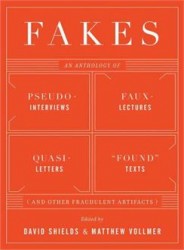
Fakes edited by David Shields and Matthew Vollmer
Anthologizing odd-ball subjects has become a mildly interesting publishing conceit and, apparently, fruitful commercial gambit. My favorite of these imaginative aggregations is Fakes: An Anthology of Pseudo-Interviews, Faux-Lectures, Quasi-Letters, “Found” Texts, and Other Fraudulent Artifacts, edited by David Shields and Matthew Vollmer. They gather “forty short fictions that they’ve found to be seriously hilarious and irresistibly teachable (in both writing and literature courses): counterfeit texts that capture the barely suppressed frustration and yearning that percolate just below the surface of most official documents.” Fun stuff.
——
About the author: Robert Birnbaum was born in Bamberg, Germany, grew up in Chicago (from the Southside to the Northside), and has lived in Brookline, Massachusetts, and Exeter, New Hampshire. He is editor-at-large at IdentityTheory and something or other at The Morning News, and keeps a blog at Our Man in Boston. He lives with his Cuban Retriever, Beny, in West Newton, Massachusetts.






